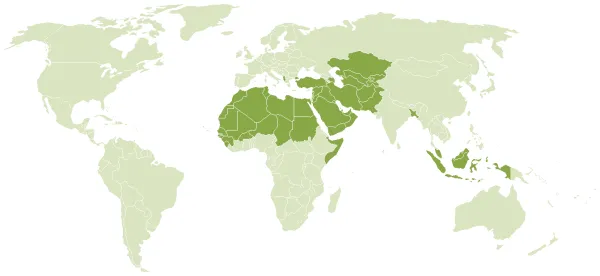Creating Human Garbage

“I don’t know if you guys know this, but there’s literally a floating island of garbage in the ocean. Yeah, I think it’s called Puerto Rico.”
This racist pseudo-joke, uttered by Tony Hinchecliffe at the Trump rally at Madison Square Garden on Oct. 27, has been virally shamed. It’s even been denounced by Team Trump itself. But I bring it back into the limelight for a moment for several eerily linked reasons.
In two dozen words, followed by a snort of guilty laughter, this “joke” describes, indeed, encompasses, a serious slice of how humanity is destroying Planet Earth. To begin with, Hinchecliffe is right about the “floating Island of garbage.” There is such a phenomenon, the presence of which no doubt deserves far more concern and attention than it gets.
Donald Trump: The President of Lies

Politico reported that Trump lied on average every five minutes over 4.6 hours of speeches and press conferences.
The Huffington Post recorded that he told 71 lies during just one town hall event.
Meanwhile, The Washington Post reported in July 2020 that President Trump made over 20,000 "false or misleading claims." This amounts to an average of 23 false claims per day (a polite way to describe lies).
Here are my seven favorite lies from Trump, with my responses:
1. The “Man of the Year” Lie
For years, President Trump claimed to be honored as "Man of the Year." In reality, he only received a plaque as a gesture of thanks for speaking at a Michigan Republican dinner in 2013.
The Mounting Costs of Enabling Israel’s War on Gaza

The U.S. government often claims to stand for the rule of law, but this past year has made it painfully clear that this doesn’t apply to Palestinians. The moral, financial, and security costs of U.S. support for Israel’s rapidly expanding wars are adding up for Americans, too.
America’s Hitler Has Dementia…& Here Are 3 Things You Can Do About it

War’s Victims Speak the Deepest Truth

“The past carries unforgettable trauma and pain across the land and among generations of refugees; yet we choose to transform victimhood into agency. We want to be the authors of our future.”
Let these words resonate. In a sense, they’re all we have — if we oppose war and envision a future that transcends it. I’ve quoted these words of Ali Abu Awwad before. They’re part of the Palestinian Nonviolence Charter, but they reach beyond Palestine: deep into the soul, and the hope, of all humanity.
No Matter the Cost – Things the Israeli Genocide in Gaza Taught Us about Palestine, and the World

The last year of a relentless Israeli war on Gaza, and bloody raids and violence in the West Bank have been largely viewed in terms of their horrific humanitarian outcomes: the unequaled killing of tens of thousands, the obliteration of Gaza and the destruction in the West Bank.
While humanitarian urgency must indeed be a priority, other factors are also deserving of consideration, especially as we mark the one-year anniversary of the ongoing war.
Even though the mass killing is yet to end, there are several conclusions that can already be drawn about the long-term consequences of the war.
The Mounting Costs of Enabling Israel’s War on Gaza

The U.S. government often claims to stand for the rule of law, but this past year has made it painfully clear that this doesn’t apply to Palestinians. The moral, financial, and security costs of U.S. support for Israel’s rapidly expanding wars are adding up for Americans, too.
A Psychological Evaluation of Donald Trump

A sociopath is a person whose behavior is antisocial, often criminally greedy, and who lacks a sense of moral responsibility, empathy or social conscience. Sociopaths never sincerely apologize nor are they capable of exhibiting remorse for wrongs that they have committed.
A narcissist is person who has an inflated sense of their own importance, a deep need for admiration, sexual gratification, applause and a lack of empathy for others.
A paranoid person or group exhibits excessive or irrational suspiciousness and distrustfulness of other individuals or groups.
A megalomaniac is a pathological egotist, someone with a psychological disorder who exhibits symptoms like delusions of grandeur and an obsession with greatness, power or wealth.
A xenophobe is a person who is fearful or contemptuous of that which is foreign, especially of strangers or of people from different countries or cultures.
A demagogue is a political leader who seeks support by appealing to popular desires and prejudices rather than by using rational argument.
James Earl Jones and the Story He Once Told Me about the Hurt Done to Him in the Town Where I Live

I first met James Earl Jones backstage at the Schoenfeld Theatre on Broadway (we were both there because we had been asked to speak at Gore Vidal’s memorial some 12 years ago). I was over the moon that within minutes I was going to get to meet him. I walked up and introduced myself.
We had a nice talk, remembering our funny and poignant moments with Gore Vidal. Jones, who was born in Mississippi, grew up south of Traverse City, Michigan in Manistee County. Moving to northern Michigan, he said, was a culture shock, and the trauma he experienced from the treatment he received as one of the few Black kids in the area, and the ridicule he endured for having a serious stutter, caused him to go silent at the age of 5, to become “mute,” and he did not use his voice until he was in high school.
I told him that I now live in Traverse City — “near where you grew up!”
He paused and looked intently at me.
“Traverse City is racist,” he said to me, quietly. He then told me what happened to him there. I’ll let him explain it in his own words in these paragraphs from his autobiography:

